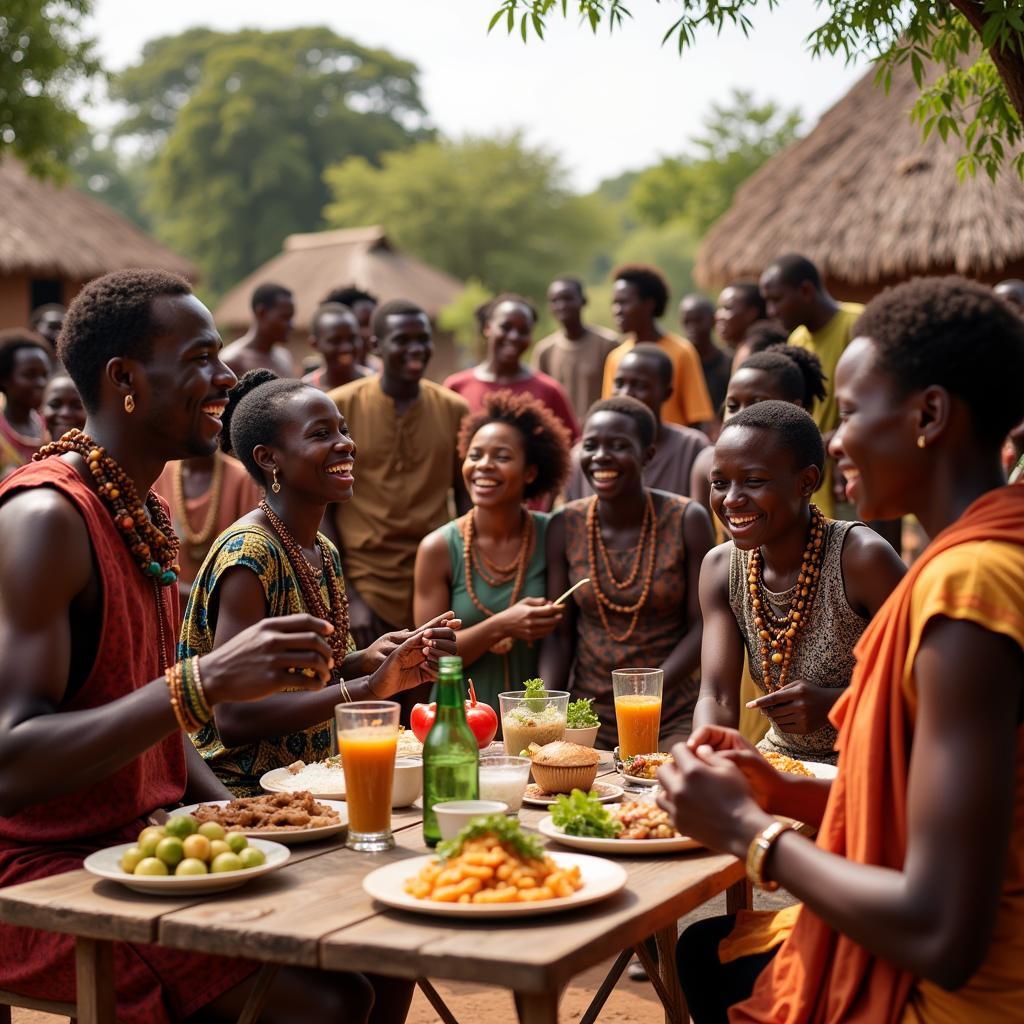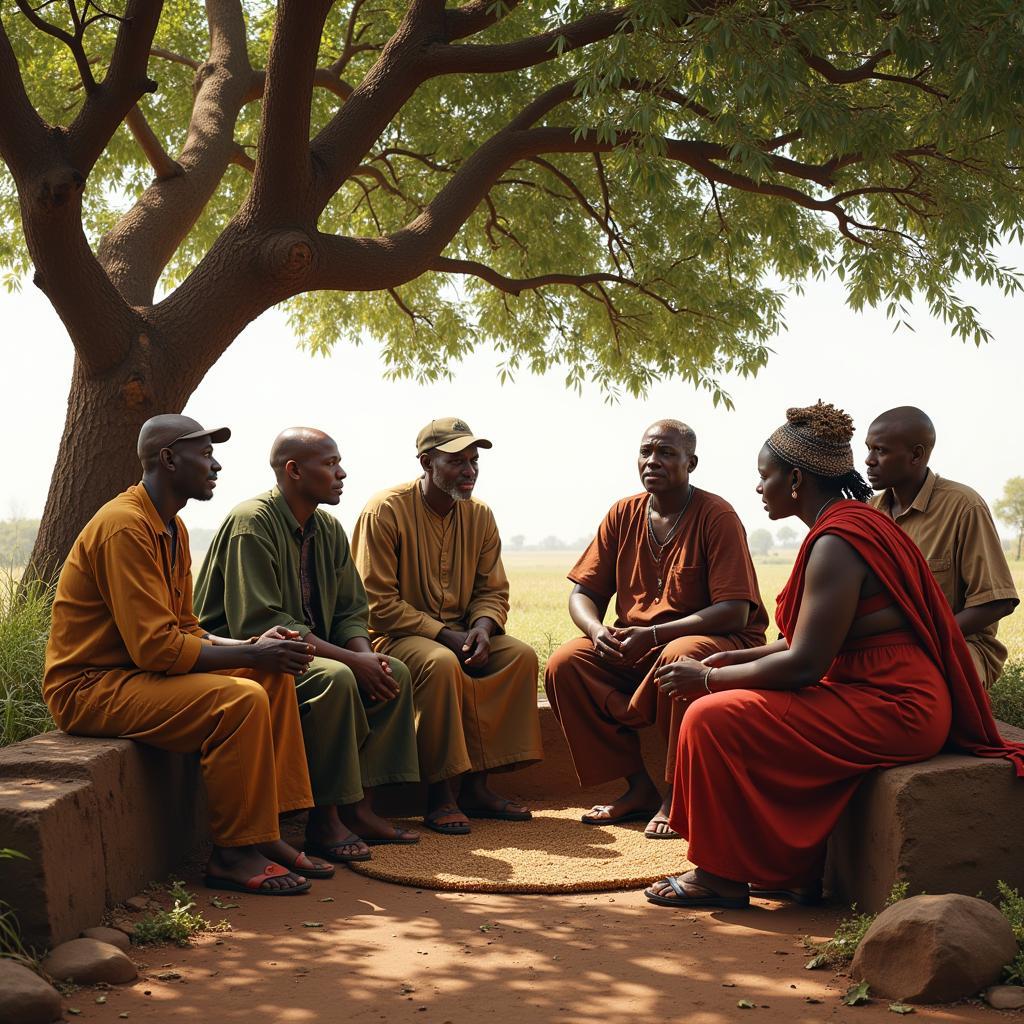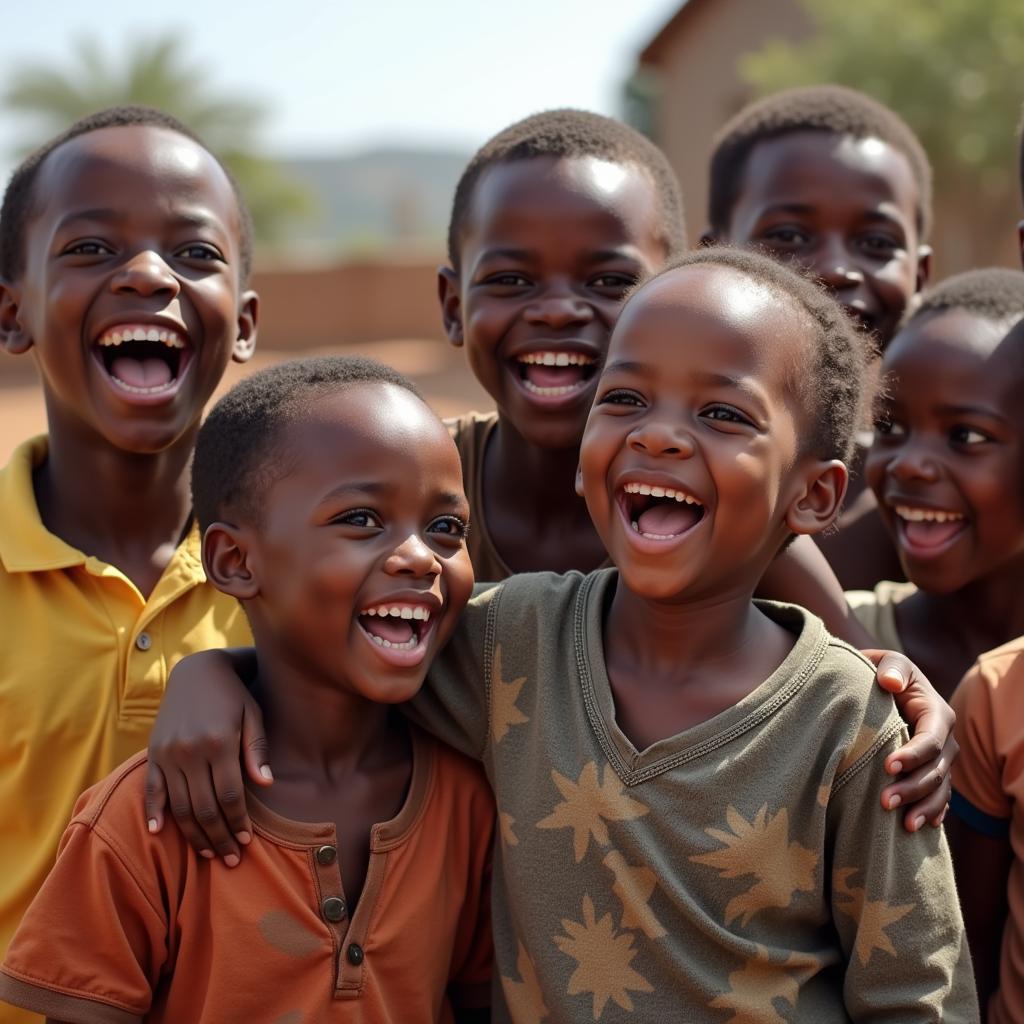Understanding African Communalism: A Deep Dive into Shared Values
African communalism is a philosophy deeply embedded within the social fabric of many African cultures. It’s more than just a concept; it’s a way of life that emphasizes shared values, collective responsibility, and the interconnectedness of all members within a community. This article delves into the rich history, principles, and contemporary relevance of African communalism, examining its impact on various aspects of life.
A History Rooted in Unity
The roots of African communalism are ancient, stretching back to pre-colonial Africa. Throughout history, African societies have faced challenges and triumphs together, fostering a deep sense of interdependence.  Celebration in a Traditional African Village This communal spirit is often reflected in proverbs like “Umoja ni nguvu, utengano ni udhaifu,” a Swahili saying meaning “Unity is strength, division is weakness.”
Celebration in a Traditional African Village This communal spirit is often reflected in proverbs like “Umoja ni nguvu, utengano ni udhaifu,” a Swahili saying meaning “Unity is strength, division is weakness.”
Key Principles of African Communalism
At the heart of African communalism lies a set of core principles that guide social interactions and communal life:
- Utu/Ubuntu: This widely known concept emphasizes the interconnectedness of humanity. It promotes empathy, respect, and the belief that an individual’s well-being is intertwined with the well-being of the community.
- Collective Ownership: In many African cultures, land and resources are often viewed as belonging to the community as a whole rather than individuals. This fosters a sense of shared responsibility for the environment and its resources.
- Cooperative Work: Traditionally, tasks like farming, building, and celebrating were often carried out collectively. This spirit of Harambee, a Swahili term for pulling together, fostered solidarity and mutual support.
- Respect for Elders: Elders hold a revered position in many African societies. They are seen as keepers of wisdom and tradition, playing a vital role in decision-making and conflict resolution.
The Impact of Communalism on Daily Life
African communalism permeates various facets of daily life, shaping social structures and cultural practices:
- Family: The concept of family extends beyond the immediate nuclear unit. Extended families and kinship ties are strong, fostering a network of support and obligation.
- Decision-Making: Consensus and dialogue are often favored over individualistic approaches. Community leaders and elders often play a significant role in decision-making processes.
- Social Welfare: Members of a community often take collective responsibility for the well-being of others. This can be seen in informal support systems for the sick, elderly, or those facing hardship.
- Conflict Resolution: Traditional mechanisms for conflict resolution often emphasize reconciliation and restoring harmony within the community.
 Village Elders Engaging in Conflict Resolution
Village Elders Engaging in Conflict Resolution
Contemporary Relevance and Challenges
While African communalism remains a potent force in many communities, it faces challenges in the modern era:
- Globalization: The influx of individualistic values associated with globalization poses a challenge to traditional communal ways of life.
- Urbanization: As more people move to urban areas, traditional social structures can become strained.
- Economic Disparities: Economic inequalities within and between communities can create tensions and challenge the principles of sharing and collective responsibility.
Despite these challenges, African communalism continues to offer valuable insights into fostering social cohesion and sustainable living.
Looking Ahead: The Enduring Legacy of Sharing
The principles of African communalism, with their emphasis on unity, cooperation, and shared responsibility, hold valuable lessons for a world grappling with issues of inequality, environmental degradation, and social fragmentation. By understanding and adapting these principles, we can learn to build more just and sustainable societies.  Children Playing Together in an African Village
Children Playing Together in an African Village
Do you want to learn more about African cultures?
If you’re interested in exploring the rich tapestry of African cultures further, we invite you to reach out. Our team is dedicated to providing insightful and engaging content that sheds light on the diverse facets of African Life.
Contact us:
Phone: +255768904061
Email: [email protected]
Address: Mbarali DC Mawindi, Kangaga, Tanzania
Our team is available 24/7 to assist you.


